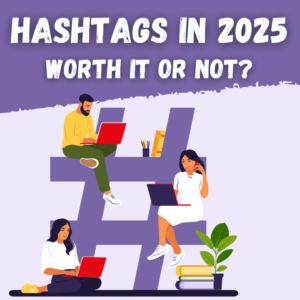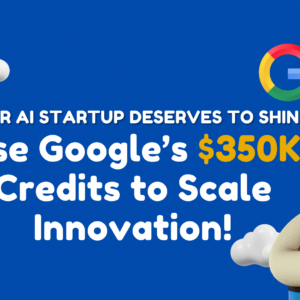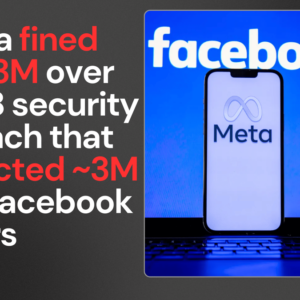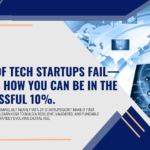In a surprising move, Meta has decided to extend its political ads blackout beyond the U.S. election period. This decision has significant implications for political campaigns, advertisers, and social media users alike. As we dive into this topic, we’ll explore why Meta made this choice, what it means for the future of political communication, and how it could change the landscape of social media advertising.
The Significance of Meta’s Decision
Meta’s decision to extend the blackout on political ads is not just a minor policy change, it represents a major shift in how social media platforms handle political communication. By preventing new political advertisements after Election Day, Meta aims to combat misinformation and maintain trust in the electoral process. This move is particularly crucial in a time when misinformation can spread rapidly online, potentially influencing public opinion and election outcomes.
Why Did Meta Extend the Blackout?
Originally, the blackout was set to end shortly after the election. However, Meta announced that this restriction would continue “until later this week.” The company cited concerns about not having enough time to contest new claims made in ads as a primary reason for this extension. This proactive approach reflects a growing awareness of the challenges posed by misinformation in today’s digital age.
Background: Previous Ad Blackout Policies
Meta has had various policies regarding political ads over the years. Since 2020, they have implemented restrictions on ads related to social issues and politics during the week leading up to elections. This strategy aimed to reduce confusion and misinformation as voters made their decisions. However, extending this blackout beyond Election Day marks a new chapter in Meta’s approach to political advertising.
How Have Policies Evolved?
The evolution of these policies shows a response to increasing scrutiny over how social media platforms manage political content. In previous elections, platforms like Meta faced backlash for allowing misleading information to proliferate. By tightening restrictions now, Meta aims to regain trust and demonstrate its commitment to responsible communication.
What’s New with This Policy?
The extended blackout means that no new political ads will be allowed on Facebook and Instagram until further notice. Advertisers who had campaigns running before the blackout can still make limited changes but cannot significantly edit their ads or target new audiences. This creates a unique situation where political advertisers must rethink their strategies during a critical time.
What Does This Mean for Advertisers?
For politicians and their teams, this means they must adapt quickly. Campaigns that rely heavily on social media advertising will face challenges in reaching voters right after the election. They may need to focus on organic content or other forms of outreach until the blackout is lifted.
Impact of the Extended Blackout
On Political Campaigns
Political campaigns will likely need to pivot their strategies significantly. With the inability to launch new ads, candidates may focus more on grassroots efforts or traditional media channels. This could lead to a more authentic engagement with voters but also limits their ability to respond swiftly to unfolding events or controversies.
On Social Media Users
For everyday users of Facebook and Instagram, this policy could have mixed effects. On one hand, users may appreciate a break from political advertisements that often dominate their feeds during election seasons. On the other hand, some might feel deprived of important information about candidates and issues that matter to them.
On Advertising Industry Trends
This decision could set a precedent for how other social media platforms approach political advertising in the future. If successful in combating misinformation, we might see similar policies adopted across different platforms like Twitter or TikTok, which have already implemented strict regulations regarding political content.
What Does This Mean for Future Elections?
Looking ahead, this policy could reshape how elections are conducted in the U.S. If social media platforms continue to impose restrictions on political ads post-election, it may encourage candidates to invest more in direct voter engagement strategies rather than relying solely on digital advertising.
Could Other Platforms Follow Suit?
Other platforms might take cues from Meta’s decision. For instance, Google has also indicated plans for similar ad restrictions around election times. As these platforms strive to maintain credibility and user trust, we may see a broader trend toward stricter regulations on political advertising across all major social media sites.
Case Studies: Learning from Other Countries
While the U.S. is navigating these changes, other countries have already implemented strict regulations on political advertising. For example:
- Canada has established clear rules about transparency in political ads.
- Germany has stringent laws against misleading information during elections.
These examples show that while challenging, it is possible for countries to regulate political advertising effectively without infringing on free speech.
Conclusion: A New Era for Political Communication
Meta’s decision to extend its blackout on political ads marks a pivotal moment in how social media interacts with politics. As we move forward into an era where misinformation poses significant threats to democracy, such policies may become essential tools for maintaining integrity in electoral processes.
What do you think about Meta’s new policy? Will it help reduce misinformation or hinder important conversations? Share your thoughts below!












